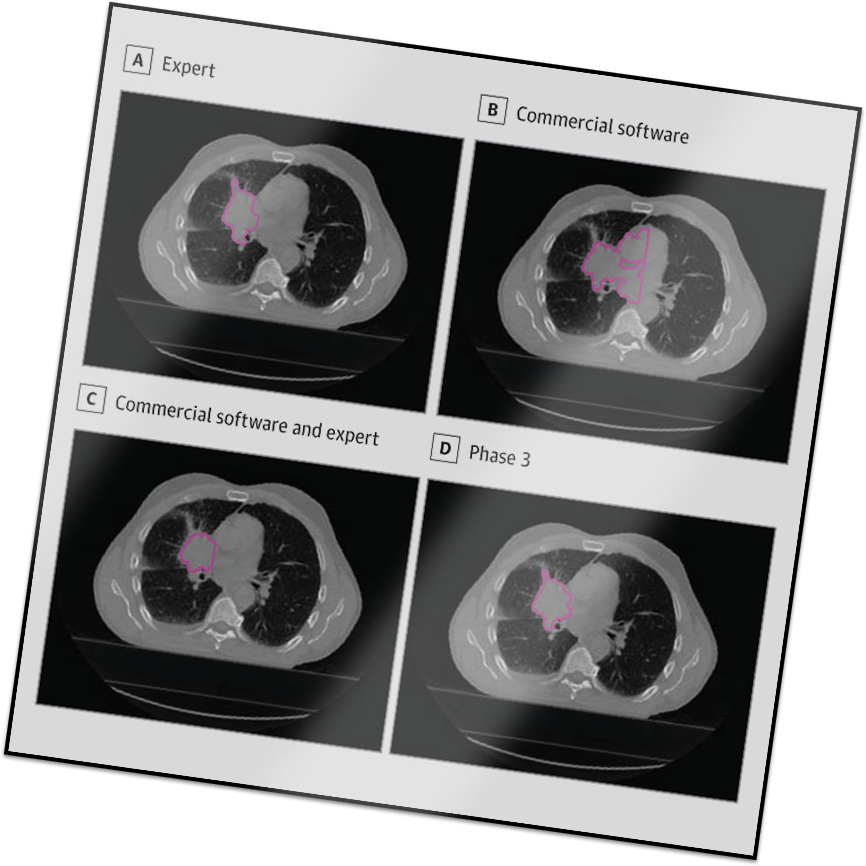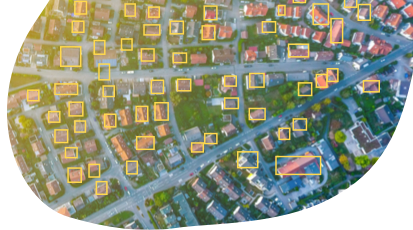Harvard Tumor Hunt
Improving lung cancer treatment through AI-powered delineation algorithms

“A combined crowd innovation and ai approach rapidly produced automated algorithms that replicated the skills of a highly trained physician for a critical task in radiation therapy.”
”Mak et al, “Use of Crowd Innovation to Develop an Artificial Intelligence–Based Solution for Radiation Therapy Targeting”
JAMA Oncology, April 18 2019
The Challenge
Manual tumor delineation—the measure of treatment field borders of tumors—is a time-consuming and complicated process. Among other pain points, it introduces individual bias as well as person-to-person inconsistencies. Topcoder joined forces with Harvard to tackle one of the most ambitious healthcare initiatives ever undertaken in the crowdsourcing world—creating and testing automatic delineation algorithms to help improve treatments of cancerous tumors in patients’ lungs.
The Topcoder Harvard Tumor Hunt aimed to produce an automatic tumor delineation algorithm that met the accuracy of the average radiology expert but exceeded them in both processing speed and consistency.
The Solution
Challenge One (Open)
Locate the tumor and trace it
02
Challenge Two (Open)
Improve therapeutic trace
03
Challenge Three (Invite Only)
Series champions invited to collaboratively build ensemble model of top 5 algorithms
“Creating and testing automatic delineation algorithms to help improve treatments of cancerous tumors in patients’ lungs”
Learn how the Topcoder Community joined forces with Harvard to tackle one of the most ambitious healthcare initiatives ever undertaken in the crowdsourcing world
The Solution
These three challenges produced an algorithm that replicated the accuracy of an expert radiation oncologist in segmenting lung tumors for radiation therapy targeting. In fact, Topcoder’s AI solution yielded a 9-12% boost in accuracy. The algorithm functioned as well — and in some cases, better — than a panel of radiation oncologists in segmenting lung tumors on patient CT scans, and it completed the task in mere seconds (ranging from 15 to 120). Human experts typically take between 10 and 30 minutes.
Impact
The Harvard Tumor Hunt brought 31 of Topcoder’s best and brightest data scientists together to create an actionable solution that was successful at both rapidly and automatically delineating cancerous tumors with the same level of skill as experts. The winning solution replicated expert skill and knowledge with AI, which could alleviate the burden on oncologists and improve the quality and consistency of cancer care. It could also deliver clinical expertise to underserved areas — like low- and middle-income countries, where lung cancer is increasingly prevalent and the number of radiation oncologists is limited. This tool has the potential to save lives and breed superior practices into cancer treatment and identification.
“While these efficiency gains are important, the potential to improve care in both developing and developed countries is the most exciting. ”
Raymond Mak, MD Radiation Oncologist,
Dana-Farber/ Harvard Cancer Center
-
564
Contestants From 62 Countries
-
32
Unique Submitters with 588 Submissions
-
07
Winners and $55,000 in Prizes



